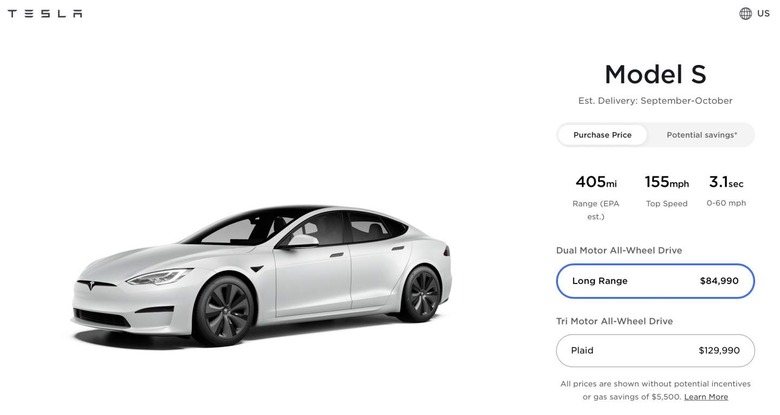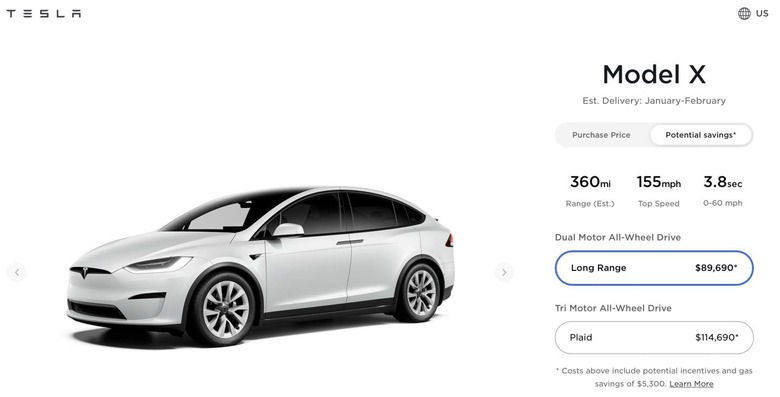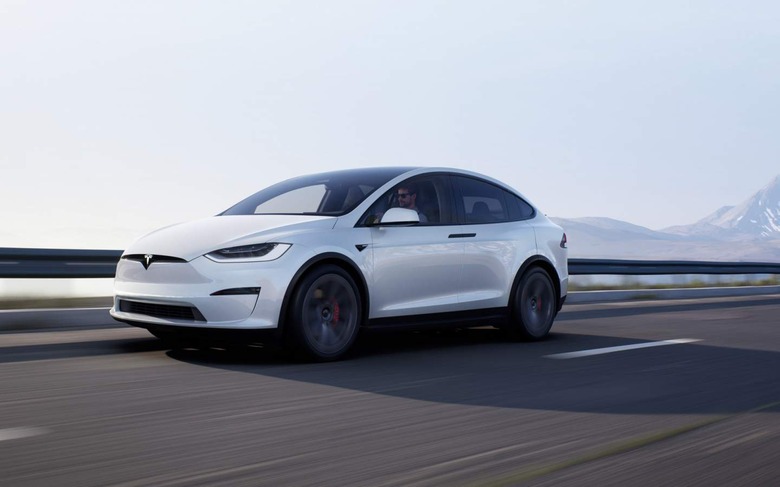Tesla's Model S And X EVs Just Got $5k More Expensive
Tesla has quietly increased the cost of its high-end electric cars, with the Model S and Model X both climbing by $5,000. The price change comes only months after Tesla increased the cost of the Model S Plaid, adding $10,000 to the sticker price of its most potent EV.
That came just before the first deliveries of the Plaid trim – which has three electric motors, a top speed of 200 mph, and can do 0-60 mph in 1.99 seconds – began in June. Tesla said at the time that it would honor preorder pricing, but adjusted the cost for new Plaid buyers as it cut the planned Model S Plaid+ from the roadmap.

Now, it's the turn of the entry-level Model S and Model X to get an adjustment. The cheapest Model S Dual Motor All-Wheel Drive Long Range now starts at $84,990. That gets you 405 miles of EPA estimated range, a 155 mph top speed, and a 0-60 mph time of 3.1 seconds.
Over on the SUV side, the cheapest Model X Dual Motor All-Wheel Drive Long Range now starts at $94,990. That promises 360 miles of EPA estimated range, a 155 mph top speed, and a 0-60 mph time of 3.8 seconds.

Tesla updated both cars earlier this year, freshening the exterior styling but saving the bigger changes for the interior. Most notable is the introduction of the "yoke" steering wheel, a controversial squared-off control that looks more like something you'd expect to find in Knight Rider's KITT than a production car. However Tesla also updated the infotainment system, dropping in a new chipset with PS5-levels of processing power.
Demand for those cars seems to be high. New orders of the Model S are now listed with an estimated delivery of September to October 2021. For the Model X, Tesla currently indicates deliveries won't be until January or February for both the cheapest version and the faster Plaid trim. That's presumably in 2022.

Sales across the auto industry have been aggressive during the pandemic, fueled in no small part by constraints faced by the manufacturers in production. Shortages of key semiconductor components – hamstrung by factories struggling to get back online after extended periods of downtime – have had an impact industry-wide, forcing some plants offline or to at least lower production. Dealers have responded by increasing premiums on new cars.
Tesla, of course, operates a different model to the traditional one, and doesn't have an independent dealer network. Instead it sells its cars to buyers direct, and as such its online prices reflect what in-dealer costs might be for rival marques. Earlier this year, it bumped up pricing on the Model 3 and Model Y, though only by $500 on the more affordable EVs in its line-up.
